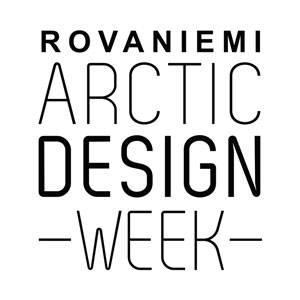RESPONSIBILITY AT THE VERY CORE
Arctic Design Week and the Arctic Snowy OwlRESPONSIBLE DEVELOPMENT OF THE ARCTIC USING DESIGN
We are concerned about the Arctic region. Globally.
We want to help the Arctic region to succeed, and this is why we strive to promote sustainable development and ethically produced Arctic design.
The endangered Arctic Snowy Owl belongs to the sensitive ecosystem of the Arctic. This beautiful migratory owl is the symbol for the Arctic Design week, the world’s northernmost design event. It conveys the message of wise and responsible Arctic design that appreciates practicality.
RESPONSIBILITY DIRECTS IMPLEMENTATION
Responsibility is not merely an environmental issue, it also part of company, employee and community responsibility.
Arctic Design Week selects its partners who respect responsibility as the premise for their operations. We inspire discussion about design and its responsibility with the themes for the week that change each year. Our seminars have stopped using paper materials and giving material gifts for speakers. The marketing materials for Arctic Design Week is recycled as far as possible.
HIILIPÖRSSI.FI IS OUR NEW PARTNER
Arctic Design Week has entered into agreement with Hiilipörssi (Carbon Exchange), for the restoration of peatlands in North Finland.
CONSUMER CHOICES
Responsibility is also broadly visible in a number of events during Design Week, including the showcasing of environmentally friendly and responsible products and services to consumers. The partner restaurants of Arctic Design Week focus on locality, local food and ecofriendly choices.
LOCAL COMMUNITIES
Arctic Design Week offers local activity providers and associations a low threshold for participating in the event week. We are seeking creative industry possibilities and business.
ROVANIEMI – PIONEER CITY OF THE CIRCULAR ECONOMY
Rovaniemi wants to develop into a leading expert in the Arctic and exemplary city in respect to the circular economy. The circular economy aims at achieving an economy whereby any product or value produced can be utilised in a controlled manner a number of times. The circular economy can also be used to inspire new forms of business.
RESPONSIBILITY IN DESIGN FORUMS
We are creating practices and ways of working that promote the responsibility of the Arctic Design Week. Our goal is to organise the design forums making a carbon footprint that is as small as possible. Naturally, we are also developing a compensation-based model, and we will tell you more about that in the near future.
This is a list of some of the ecofriendly practices adopted for Arctic Design Week conferences:
- We do not give out material gifts for speakers. We have replaced gift-giving with local experience services.
- We have stopped giving out material on paper at conferences. All material intended for visitors and staff is available in digital formats.
- We have stopped using plastic drinking bottles in the forums.
- We do not sell individually wrapped products.
- We only offer wooden pens.
- Familiarising our staff with our principles of responsibility is integral to our operation.
- Presenting northern culture in the event is a central part of the conference area.
- We try to make better packaging and minimise the use of transportation and materials.
- The conference venue is easily accessible using public transport.
- We engage in efforts to develop responsibility instruments for future years.
- The paper used for all our marketing communications is SCF-certified.
Servings and responsibility during the conference:
- All servings have been ordered from the local Korundi House of Culture.
- Food responsibility information will be published at the seminar.
- Coffees and teas are organic and/or Fair Trade products.
- No furniture or plants have been produced or ordered for the event.
- Even dining table decorations take responsibility into account.
- No disposable products are used for servings.
- The number of participants is confirmed in advance, meaning pre-planning that avoids food surpluses.
